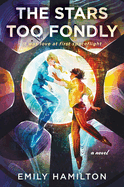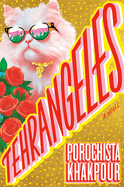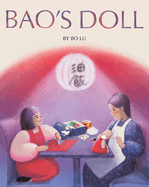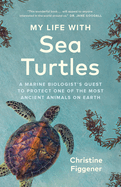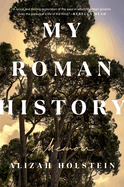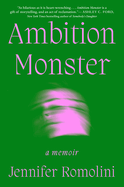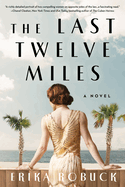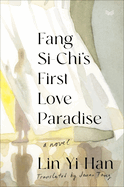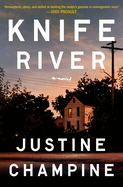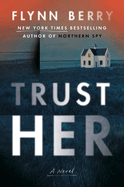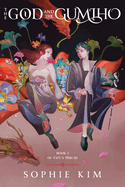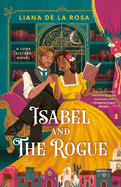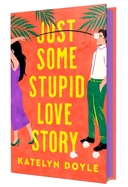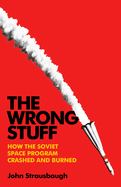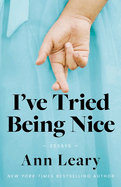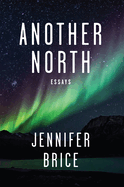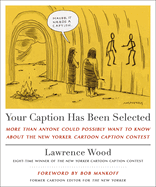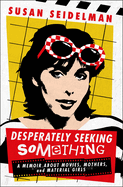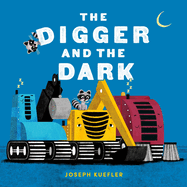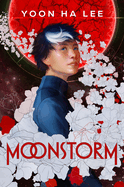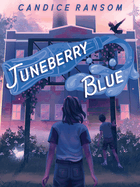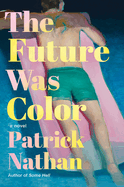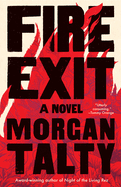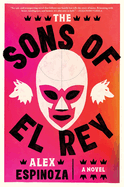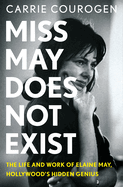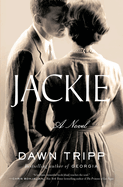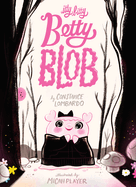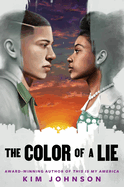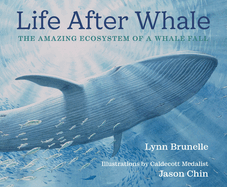Friday, June 28, 2024
This week, we recommend Tehrangeles by Porochista Khakpour, a "contemporary whirlwind comedy drama" about an "obscenely wealthy" Iranian American family in Los Angeles that's "pure literary entertainment"; and Ambition Monster by Jennifer Romolini, a "laugh-out-loud funny" memoir that is also "sharp and insightful as [Romolini] explores questions of work and its relationship to identity"; as well as My Life with Sea Turtles by Christine Figgener, both a "love letter to sea turtle conservation" and a memoir that "brims with natural beauty." Plus, Bao's Doll by Bo Lu is an "impressive picture book debut" that "encourages connection and understanding."
And in our True-Crime Novels feature, we highlight numerous summer reading recommendations that feature podcasters sleuthing out the truth of crimes new and old for their listeners.
Tehrangeles
by Porochista Khakpour
A contemporary whirlwind comedy drama starring the obscenely wealthy Milani family of Los Angeles, Tehrangeles by Porochista Khakpour (The Last Illusion, Sick) is the ultimate parody of a nouveau riche clan of Iranian Americans eager to downplay their immigrant roots.
Ali Milani lives with his wife, Homa, in an opulent mansion with their four daughters and a Persian cat named Pari. Aspiring model and eldest child Violet would prefer to be known by her Iranian name, "Banafsheh." Fiery second daughter, Instagram queen, and high-schooler Roxanna is the beating heart of Tehrangeles, her ambitious ideas for courting fame propelling much of the story's glittery action. Mina is serious and studious, and grappling with matters of sexuality that go beyond geopolitics. Whatever leisure time Haley, the youngest at 14 years old, has is channeled toward her obsession with fitness. Tehran-born writer Khakpour's characters struggle with questions of identity arising from the hostilities between their native country and their adopted home.
Set in early 2020, the story opens with the Milanis poised to star in their very own reality TV series. But when the global pandemic delays production, Roxanna pivots to planning an opulent party, ignoring concerns about hosting a super-spreader event. With speculation heightening on whether the family home will be graced by any of the A-list celebrities invited to the event, what transpires is a spectacular family meltdown that only the Milanis could pull off, with the author clearly enjoying every minute of the action.
A treat for fans of Crazy Rich Asians, Tehrangeles is pure literary entertainment poking good-natured fun at "the world's largest community of Iranians outside Iran." --Shahina Piyarali
Discover: This contemporary whirlwind comedy drama parodies the wealthy Iranian-American families who call Los Angeles home.
The Last Twelve Miles
by Erika Robuck
Erika Robuck's eighth historical novel, The Last Twelve Miles, vividly chronicles the rivalry between rum-running queen Marie Waite and pioneering cryptanalyst Elizebeth Smith Friedman, two brilliant Prohibition-era women who may have more in common than they realize.
Robuck (Sisters of Night and Fog) begins the story on the high seas, as Elizebeth chases down a boat full of potential contraband alongside her Coast Guard colleagues. From there, the narrative alternates between Elizebeth's orderly life of code breaking and child rearing, and Marie's adventures running liquor alongside her husband, Charlie. Robuck highlights key details of both women's real-life biographies, such as Marie's Belgian and Franco Spanish ancestry, which earned her the nickname "Spanish Marie," and the fierce ambition that drove Elizebeth to pay her own way through college. Though operating on opposite sides of the law, they both know the realities of being the lone woman in male-dominated professions; the challenges of balancing career and motherhood; and the constant internal second-guessing that plagues successful women. Robuck also captures Elizebeth's mingled love and worry for her husband, William, whose mental health suffers as a result of his wartime experiences, and Marie's disillusionment with Charlie, who is impulsive and inclined toward violence. As the stakes mount--Marie risking her marriage and her fortune, and Elizebeth growing more determined to defeat her enemy--Robuck brings her characters and readers to a spectacular finish.
Brimming with ciphers, cocktails, and dramatic tension, The Last Twelve Miles is a breathtaking account of two women whose skills outmatched everyone around them--except each other. --Katie Noah Gibson, blogger at Cakes, Tea and Dreams
Discover: Erika Robuck's spectacular eighth novel chronicles the rum-soaked rivalry between two real-life Prohibition-era women: a bootlegger and a pioneering cryptanalyst.
It's a Privilege Just to Be Here
by Emma Sasaki
Emma Sasaki deftly lures readers with an insider exposé in It's a Privilege Just to Be Here. Sasaki sets her debut novel in the fictional Wesley Friends School, a thinly veiled facsimile of one of the most elite private educational institutions in Washington, D.C. For Aki Hiyashi-Brown, being a Wesley teacher "means loving the students and tolerating the parents"--especially those with too much power, money, and time. Aki (with her employee discount) is also a Wesley parent to 17-year-old lifer Megumi. As seniors receive their Ivy (and adjacent) early decisions, someone defaces the arts building with the message "Make Wesley White Again."
The following 300 pages reveal, of course, who- and why-dunnit, but likely more enticing will be glimpses into the lives of D.C.'s most overprivileged families. The parents are "just like other parents, only with shinier teeth, alternative energy cars, custom-built firepits, and multiple board memberships." By senior year, their children, beneficiaries of Wesley's annual $51,000 price tag, "are four-faced: one face to their friends, one to their parents, one to their teachers, and one to college admissions officers." Sasaki's delightfully biting insight is undeniable, even if she occasionally veers toward eye-rolling dialogue ("Mother, the dominant paradigm replicates itself if you simply leave change to institutional decision-making!") and unbelievable scenarios (Aki outing a manipulative parent's extramarital affair during a meeting by declaring, "You care so much about your son you've been sharpening the guidance counselor's pencil"--before being promoted to head of the upper school!). But then again, remembering this is fiction should be enough for readers to believe--and just enjoy. --Terry Hong
Discover: Emma Sasaki's debut novel is an insider's entertaining takedown of the most affluent, overprivileged, power-elite families in Washington, D.C.
Fang Si-Chi's First Love Paradise
by Lin Yi-Han, transl. by Jenna Tang
Lin Yi-Han's U.S. publisher, HarperVia, hails Fang Si-Chi's First Love Paradise as "the most influential book of Taiwan's #MeToo movement." Lin's harrowing and haunting portrayal highlights the lives of girls and women who reside in the same high-end apartment complex. Since childhood, Fang Si-Chi and Liu Yi-Ting are "soulmates," sharing a precocious love of literature--and an adolescent crush on Teacher Lee. Iwen, the young wife of the building's "especially rich" family's heir, feeds them, literally (the best afternoon snacks) and intellectually (from Du Fu to Dostoyevsky). The gifted girls are sent to Taipei for high school, where Si-Chi confesses to Yi-Ting that she's Teacher Lee's "girlfriend." The reality is a sanity-breaking nightmare that began with pernicious grooming by a serial pedophile 37 years older who raped Si-Chi when she was 13, entrapping her in years of relentless sexual manipulation. Her survival depends on believing she's experiencing "love paradise."
With more than a million copies sold globally, this "feminist manifesto" arrives stateside in a lyrical translation by Taiwan-born polyglot Jenna Tang, whose ending note provides further illuminating context, including her own transformative, almost three-year anglophone journey with this title. Although the cover clearly states that the book is "a novel," its autobiographical elements are many; following Lin's 2017 death at age 26, her parents released a statement confirming the veracity of Lin's sexual abuse that led to her suicide. Lin breaks all silence to write unreservedly about predation and violence. Her first and final book proves to be wrenching, don't-dare-turn-away testimony demanding acknowledgement, empathy, and support. --Terry Hong
Discover: The late Taiwanese writer Lin Yi-Han searingly confronts sexual grooming, predation, and violence against girls and women by predatory men in her first and final novel.
Mystery & Thriller
Knife River
by Justine Champine
In her intimately engrossing debut novel, Knife River, Justine Champine portrays two sisters whose futures were forever stalled the morning their mother disappeared from their small town in upstate New York.
Liz Fairchild was 19 and anxious to go away to college to study aerospace engineering. Instead, she became obsessed with their mother's disappearance and never left the town of Knife River. She leads a solitary life, works at the local bank, and still lives in the family home, which is filled with years-old junk she won't discard. Jess was 13, too young to have made many plans, but she's never settled in one place, drifting from girlfriend to girlfriend, working at a remote job. The sisters seldom see each other.
Then children uncover their mother's skeleton in the woods just outside Knife River, 15 years after she went missing. Jess hurriedly leaves her first stable relationship to join her sister. At first, the reunion is uneasy as neither sister is comfortable around the other. But they soon settle in as they try to figure out what happened to their mother. The police are little help and seem uninterested in a local businessman whom the sisters have long suspected in the disappearance.
Champine superbly combines the sisters' investigation with a thoughtful look at family bonds. As Jess and Liz begin to appreciate each other while dealing with their mutual grief, Champine's depiction of their evolving mental health and the impact of their mother’s shadow elevates this tense and gripping novel. --Oline H. Cogdill, freelance reviewer
Discover: Two sisters deal with their mutual grief and stalled lives after their mother's skeleton is found, 15 years after she went missing, in this intimate, gripping thriller.
Trust Her
by Flynn Berry
Both a heart-racing thriller and a story of complex family relationships, Trust Her is Flynn Berry's second novel exploring the impact of political violence on generations of Irish citizens. In this sequel to Northern Spy, the sisters who fled IRA reprisals in the North for safety in Dublin find they haven't outrun their pasts.
Tessa and Marian Daly lead uneasy lives as they adjust to their new identities and perform their roles as young mothers while living "with a security alarm, with double-paned windows, with extra locks on the doors," fearful that terrorists will find them. Marian had been the one to recruit Tessa to the IRA when the two lived in Belfast, but now it's Tessa who's forcefully blackmailed into "turning" an MI5 agent to work for the IRA. Duplicity informs Tessa's every act, with Marian as her only confidante. Both Tessa and Marian are sympathetic characters, and revelations about their history in Northern Ireland cast Tessa as more of a victim. Secrets from her family's past and a dangerous rekindling of romance increase Tessa's vulnerability. But as the tension escalates, Marian acts with death-defying heroism in a surprising climactic scene.
Trust Her is an atmospheric novel about the angst of people with deep loyalties to a cause as well as tender desires to live untroubled lives. Signs of peace circulate at the novel's end, raising hopes that the sisters will indeed find freedom from fear. --Cheryl McKeon, Book House of Stuyvesant Plaza, Albany, N.Y.
Discover: Sisters with ties to the IRA attempt to live peacefully with new identities in Dublin but are violently forced back into the conflict in this atmospheric, heart-racing thriller.
Science Fiction & Fantasy
The Stars Too Fondly
by Emily Hamilton
Debut author Emily Hamilton bursts onto the scene like a supernova with The Stars Too Fondly, a dazzling, heartfelt space adventure novel about chosen family and the ache of existence. In the near-future United States, Cleo McQueary and her friends have fixated for years on the unexplained disappearance of the Providence spaceship's crew at its moment of launch. Their evidence-collecting trek to the ship goes awry when the Providence's dark matter engine unexpectedly activates, launching them onto the journey to a distant planet its original crew never took. But they aren't alone: Providence captain Billie Lucas secretly uploaded a copy of herself to the ship's computer, and her hologram quickly comes to their aid. While Billie tries to fill in gaps in her memory, the friends realize that their exposure to the dark matter engine has bestowed some of them with inexplicable powers all linked to another dimension, and solving the mystery of the crew's disappearance becomes more important than ever.
Hamilton layers emotional tension with physical peril. As the ship travels at light speed, Cleo and Billie embark on an electric journey of their own, drawing ever closer yet never able to touch. But the novel isn't only about their romance; the group's long-standing relationships strain and mend as the friends grapple with the idea of never making it home and what it might cost them to try. With humor, sweetness, and force, Hamilton's blend of sci-fi caper and slow-burning romance conveys the importance of never giving up on one another, even when lost in space and time. The Stars Too Fondly marks Hamilton as an author to watch. --Kristen Coates, editor and freelance reviewer
Discover: This debut novel, perfect for sci-fi and romance readers alike, is a bright, heartfelt space adventure featuring a chosen family, dark matter, and a heroine who falls in love with a hologram.
The God and the Gumiho
by Sophie Kim
In The God and the Gumiho, Sophie Kim (Last of the Talons) spins an enemies-to-lovers tale about two antiheroes, drawing from Korean mythology and inspired by K-dramas.
Trickster god Seokga has been banished to the earthly realm after a failed coup in the heavenly realm, and his return is predicated on him killing 20,000 Unrulies, supernatural beings who terrorize humans. Kim Hani is a gumiho, a nine-tailed fox in human form that gains energy by consuming human souls (which is fatal for humans). She is also hiding her history as the Scarlet Fox, whose bloody spree a century ago led to a prohibition on the killing of humans by gumiho. In a twist of fate, Seokga and Hani end up working together when an eoduksini, a demon that eats souls, begins killing humans in horrific ways. At first, the two snarl at each other every chance they get, but god and gumiho are increasingly unable to resist their growing attraction. Hani recognizes her effect on the usually cold god when he begins showing emotion and vulnerability around her, but she can't keep her true identity from Seokga forever. They're hurtling toward a fiasco that could destroy them both--with no way out.
Seokga and Hani are complex characters, and Kim is a master at getting readers to root for them. Their initial spats and thrown barbs are irresistibly exciting, and their escalating sexual tension is intimate and passionate. Driven equally by plot and characters, the novel builds to an explosive, gasp-worthy conclusion that will leave readers eager for the second installment of the Fate's Thread series. --Dainy Bernstein, freelance reviewer
Discover: A criminal gumiho and a fallen god who chases criminals like her fall in love despite the impossibility of a happy ending in this fast-paced novel inspired by Korean mythology.
Romance
Isabel and the Rogue
by Liana De la Rosa
The charming, funny, and spicy second installment in Liana De la Rosa's Luna Sisters series, Isabel and the Rogue, focuses on middle sister Isabel and her love story with Captain Sirius Dawson, a second son and military veteran. Readers were first introduced to these characters in Ana Maria and the Fox and will be pleased to see their story develop. As with many books in romance series, this novel can be enjoyed on its own, but the experience is improved by reading the series' first book.
The novel opens in May 1865, during the French occupation of Mexico. Before the Luna sisters escaped to London (as depicted in the previous book), Isabel--who is far more than the wallflower she appears to be--was tasked with spying on the English nobility and reporting anything that could be used to convince Britain to support Mexico. Little does she know that Sirius is similarly occupied. When Sirius discovers Isabel in a study she is definitely not supposed to be in during a party, she has no choice but to collaborate with him.
Readers will enjoy the novel's firm grounding in historical events. De la Rosa gives every character a chance to shine in a world filled with parties and intrigue that comes alive with sparkling dialogue and scintillating chemistry. Readers will eagerly await the story of Isabel's younger sister, Gabriela. Perfect for lovers of Julia Quinn's Bridgerton or Lisa Kleypas's Ravenels series, the Luna sisters are a delightful addition to historical romance. --Alyssa Parssinen, freelance reviewer and former bookseller
Discover: Charming and funny with plenty of spice, Isabel and the Rogue is a wonderful second entry in Liana De la Rosa's Luna Sisters series.
Just Some Stupid Love Story
by Katelyn Doyle
Katelyn Doyle's first romantic comedy, Just Some Stupid Love Story, has the same kind of strong female heroine and tender romance as the historical fiction she writes under the pseudonym Scarlett Peckham. High school sweethearts Molly Marks and Seth Rubinstein haven't spoken since the night they graduated, when Molly unceremoniously dumped Seth. Fifteen years later, they find themselves assigned to the same table at their high school reunion. Molly, a rom-com screenwriter, and Seth, a successful divorce attorney, discover that while their adolescent spark is unchanged, their adult views on relationships are anything but. Molly tells Seth that romance is just fantasy: "It starts at the meet cute and ends when things are finally going well," but never shows harsh realities and bitter ends. Seth, who helps people end their love stories for a living, still believes that "everyone is meant to have a love of their life."
Their opposing views create amusing banter and seductive chemistry. Doyle cleverly provides Molly and Seth with a second chance, with higher stakes, when they make bets on the longevity of their friends' relationships--and on their own. They both think that by their next reunion, they will have proved the other wrong. The novel follows Molly and Seth over the next five years as their relationship evolves into a poignant portrayal of true love that defies all odds.
Molly's tough exterior and Seth's trustful optimism lead to touching moments of vulnerability and intimate truths about what makes someone the way they are. Their alternating perspectives take readers on an entertaining, bumpy ride through their individual emotions and, ultimately, their second chance at love. --Clara Newton, freelance reviewer
Discover: Former high school sweethearts bet on whether true love exists, as they explore second chances and undeniable chemistry in this poignant, entertaining rom-com.
Biography & Memoir
My Roman History: A Memoir
by Alizah Holstein
In her insightful first book, My Roman History: A Memoir, Alizah Holstein explores the scope of Rome's past and her deep connection to it. Holstein, who fell in love with Rome as a high school student reading Dante, chronicles the ways her life has orbited around the Eternal City and how she has found herself drawn back to it again.
In spite of her affinity for the city, Holstein has no particular ties to Rome, except the ones she has created. As a colleague reminds her, she will never be from Rome, though she feels she is somehow of it. She recalls the history teachers who first made the city come alive for her, and the rock-climbing comrades who became her true Roman community. The narrative captures details of Holstein's visits to Rome: the small blue bedroom she rented in Trastevere; countless hours bent over medieval texts in archives; the layers of flavor and memory wrapped up in her first tartufo cioccolato.
As a historian, Holstein focused on medieval Rome, and she also charts her research work, her dissertation process, and her efforts to build an academic career before finally deciding to "become someone else." Though she leaves academia behind, Holstein finds she can't quite quit Rome: she returns, again, to revisit beloved haunts and reckon with the feelings the city inspires in her. My Roman History is a winding, lyrical journey through the streets of an ancient city and through Holstein's continual effort to find herself there. --Katie Noah Gibson, blogger at Cakes, Tea and Dreams
Discover: Alizah Holstein's lyrical memoir explores her lifelong love for Rome and her efforts to weave the city's history together with her own.
Ambition Monster
by Jennifer Romolini
Great memoirs teach readers something not just about the author but also about themselves. Jennifer Romolini's Ambition Monster is an admirably truthful portrait of how easy it is to fall into the status-chasing trap and how hard it is to turn instead toward personal fulfillment.
Romolini is a keen observer of human nature and the psychological fissures that contribute to workaholism. She describes a chaotic childhood, a troubled adolescence, and a young adulthood spent clawing her way up the social stratum from waitress to magazine editor--although "the job doesn't pay a lot." But her increasingly senior titles never quite seem to satisfy the insatiable monster that is her own ambition. Her story takes a long, winding road toward understanding why, enticing readers to join her for the ride.
Romolini is laugh-out-loud funny as she blithely describes scenes where the behavior on display is so horrible that humor is the only sensible response. Every day at one magazine, "a senior editor walks through the office scouting for the website's 'outfit of the day' (OOTD) girl, points a finger at the chosen one, You! Cute!" Of course, this causes Romolini to "start obsessing" about her own outfits as she feels a "chest-clenching pressure to get it right." Moments like this call to mind the truism "pain plus time equals comedy," as Romolini captures the intersection of absurd hilarity and all-too-real trauma.
Romolini's prose is sharp and insightful as she explores questions of work and its relationship to identity. Ambition Monster is full of diamond-edged writing and delightfully cruel wit, and its complicated author ultimately achieves a hard-won revelation. --Carol Caley, writer
Discover: This laugh-out-loud memoir explores how easy it is to fall into the professional status-chasing trap and how hard it is to truly turn toward fulfillment.
Traveling: On the Path of Joni Mitchell
by Ann Powers
Few cultural figures approach the renown of singer-songwriter Joni Mitchell, whose status and struggles music journalist Ann Powers (Good Booty) fully investigates in her potent and intimate biography, Traveling: On the Path of Joni Mitchell. Powers traces Mitchell's origins, influences, significance, and social and cultural contexts with crisp, insightful detail, delving into the pathways that forged Mitchell's legacy and legend. "Becoming legendary is a strange process of both expansion and reduction," she observes, as "the knotty totality of a person is smoothed out into one official portrait, and in a way, the legend becomes a former person, at least in the public view."
However, Powers's work is neither hagiographic nor fan service, providing instead a nuanced portrait of an artist very much of her time--a time that lauded male genius, a contrivance that accorded few women anything other than supporting roles. There's magic in Powers's fluid and lyrical prose and in the details she provides from her own life and work as counterpoints or corollaries to what she finds in Mitchell's story. Another striking feature of Traveling is the depth and breadth of interviews Powers conducted over a multiyear period with people from all eras of Mitchell's life, relayed with Powers's own wry and illuminating commentary. For instance, as one man after another tells Powers that they consider Mitchell "the best singer-songwriter of our times," she realizes "that humility is one source by which old men recharge themselves."
Traveling is a monumental biography--revelatory and compassionate. --Elizabeth DeNoma, executive editor, DeNoma Literary Services, Seattle, Wash.
Discover: Traveling is a powerful, insightful, and revelatory look at one of the most significant singer-songwriters of the 20th century, the incomparable Joni Mitchell.
History
The Wrong Stuff: How the Soviet Space Program Crashed and Burned
by John Strausbaugh
The Soviet space program--"a litany of... oddball make-do workarounds"--is revealed with all its bluffs and secrets in historian John Strausbaugh's highly entertaining The Wrong Stuff.
In the heady days of the space race, the Soviet Union scored early points (and propaganda) with the launch of the first satellite, Sputnik, in October 1957 and the first man in space, Yuri Gagarin, in April 1961. According to Strausbaugh, however, the Soviet space success had more to do with luck and pluck than technological expertise or prowess. "The Iron Curtain hid a lot that was tumbledown and bargain basement," he says, and for every victory of the program, countless explosive failures were swept under the Soviet rug. Strausbaugh ranges breezily over the building of the Cosmodrome (the Soviets' "flea-bitten Canaveral"), cosmonaut training, unfortunate "dogsmonaut" experiments, and the low-tech, slapdash nature of the program that rarely fixed its frequent technical difficulties--which almost killed Gagarin during his reentry to Earth (only publicly reported in 1991). With a straight face, Strausbaugh recounts how early cosmonauts wore wool leisure suits in lieu of pressurized space suits so they could fit into their capsules. He also sorts through different accounts of cosmonaut Vladimir Komarov's demise aboard Soyuz 1 on its first flight in 1967, a futile exercise in "rage and frustration."
The Wrong Stuff is the right choice for readers fascinated by space and the human absurdities that propel us there. --Peggy Kurkowski, book reviewer and copywriter in Denver
Discover: In The Wrong Stuff, John Strausbaugh entertainingly reveals how the Soviet space program logged stunning--and lucky--achievements thanks to derring-do and a willingness to risk human lives.
Impossible City: Paris in the Twenty-First Century
by Simon Kuper
Paris: Who hasn't imagined themselves living there at some point? But what is it really like to live in a city with so much history and cultural influence, and so many internal contradictions? Journalist Simon Kuper's Impossible City: Paris in the Twenty-First Century takes readers beyond the postcards and souvenirs and into the heart of a metropolis that's at once stubbornly traditional, yet in constant, sometimes rapid change.
Kuper (Chums; Soccernomics) moved to Paris in 2001, and his longtime resident status takes readers far outside of guidebook territory and into the intricacies of navigating Paris's bureaucracy and multiethnic society, raising a family, living through multiple terrorist attacks, and negotiating its health-care system. His prose is entertaining, wry, and self-aware. Kuper deftly formulates his history and contemporary social analysis and his position allows him a particular viewpoint into topics such as immigration, class divisions, elitism, and the city's struggles and successes in accommodating its diverse citizenry. "I realised then that, as a foreigner, I was liberated from two blights that afflict people who live in big cities in their own countries: the Media Bubble and the Status Dance."
Impossible City is filled with affection, but it's never romantic. Its insights will leave readers with a more complex and grounded take on the City of Light. It's essential reading not only for anyone fascinated by Paris but also for those curious about how old-world powers reconcile with their cultural legacies in contemporary society. --Elizabeth DeNoma, executive editor, DeNoma Literary Services, Seattle, Wash.
Discover: Impossible City that takes readers beyond postcards and souvenirs to offer a glimpse at Parisian life that's affectionate but never romantic.
Essays & Criticism
I've Tried Being Nice: Essays
by Ann Leary
Acclaimed writer Ann Leary (The Good House; The Foundling) takes a gleeful leap into her "young senior" years with reflections on her tennis game, the dogs that are her constant companions, and her chronic people-pleasing tendencies in I've Tried Being Nice. In disarmingly frank language that is often laugh-out-loud funny, Leary conveys her struggles as an alcoholic, and the pressure she felt "to be the nicest person everybody ever met," and she celebrates the freedoms that accompany aging and an empty nest.
"States of Mind" is the story of Leary's peripatetic childhood and her efforts at fitting in each time she was the new kid at school again. Here she reveals the contours of family life with a restless father and the joyful distraction books provided whenever they moved. Leary writes with bracing honesty about marriage and the challenges of keeping "the family egg whole" while in the thick of her child-rearing years. "Empty Nest" is an exuberant portrayal of Leary's realization that she and her husband, actor Denis Leary, "no longer had to be good" once their children left home, so they promptly let go of all their rules concerning swearing and watching TV during dinner.
Leary is the author of four novels and a memoir, but these essays see her add emergency medical technician and ballroom dancing to her résumé. She revels in the self-discovery that accompanies the acquisition of new skills, her "desperation to please others" morphing into a confident intention to focus on kindness above all else. --Shahina Piyarali
Discover: Acclaimed novelist Ann Leary reflects with humor on marriage, her empty nest, and her chronic people-pleasing tendencies in this disarmingly frank collection of essays.
Another North
by Jennifer Brice
Along with poetry and short stories, extended personal essays occupy a place on any list of underappreciated literary works. In the 12 fresh, candid, and often emotionally resonant pieces that compose Another North: Essays, however, Jennifer Brice reveals how the almost limitless flexibility of the essay makes it such an appealing vehicle for a writer of her skill.
Brice (Unlearning to Fly) wrote these essays over 25 years, and they often circle back to familiar themes, among them family, her romantic life, and how she navigates the world as a woman. Many of the essays draw on her roots in Fairbanks, Alaska; It's a locale that for her is "simultaneously home/not home." Among the most memorable essays in a book that touches on subjects that include cooking, selecting the perfect white T-shirt, and losing things, is "Playing Bridge with Robots." In it, Brice traces the arc of her long friendship with a fellow writer before it fell, inexplicably, into a silence that lasted 20 years. "I know what it's like, that partial eclipse of the sun. Such a surprise. So chilling." Another standout piece is "My Essay on Flowers and How Things End," that focuses on Brice's checkered love life. She calls it her "weird abecedarian essay," in which each section begins with the name of a flower in alphabetical order and stands for a different personality trait.
Anyone who appreciates the work of writers like Rebecca Solnit and Mark Slouka will find a kindred spirit in Jennifer Brice. As revealing as these essays are of her life, readers shouldn't be surprised if they spark meaningful reflections of their own. --Harvey Freedenberg, freelance reviewer
Discover: Jennifer Brice surveys aspects of her life in a refreshingly candid collection of personal essays.
Nature & Environment
My Life with Sea Turtles: A Marine Biologist's Quest to Protect One of the Most Ancient Animals on Earth
by Christine Figgener, transl. by Jane Billinghurst
My Life with Sea Turtles: A Marine Biologist's Quest to Protect One of the Most Ancient Animals on Earth is Christine Figgener's love letter to sea turtle conservation.
Figgener chronicles her experiences as a marine biologist in this robust and engaging debut memoir, translated from the German by Jane Billinghurst. She depicts her origins in a small West German town, the encounter with a "single leatherback turtle" in Costa Rica that "kick-started the greatest adventure" of her life, and her dedicated work in turtle research. Figgener highlights enchanting encounters with different turtle species, such as leatherbacks and Kemp's ridley turtles. Her descriptions are augmented by labeled illustrations of the turtles, accompanied by anatomical, biological, and conservation notes, as well as by multiple photos.
This memoir brims with natural beauty, such as nights that "ended with the horizon gradually becoming lighter as it picked up the first rays of sun reflecting off the mountains, bathing... the beach in an otherworldly glow," or the awe-inspiring experience of swimming with turtles in the ocean. Figgener also shares her personal experiences with the challenges of navigating a male-dominated field and her insider's perspective on field work and the roadblocks to nonprofit conservation.
My Life with Sea Turtles is an essential compendium that will provide readers with insight into the life of a marine biologist and a true appreciation of the wonder of sea turtles. --Grace Rajendran, freelance reviewer
Discover: Christine Figgener's first book is an enchanting, informative memoir about sea turtle conservation and marine biology.
Humor
Your Caption Has Been Selected: More Than Anyone Could Possibly Want to Know About the New Yorker Cartoon Caption Contest
by Lawrence Wood
Cartoon fans and those who relish behind-the-scenes peeks into popular culture will delight in Your Caption Has Been Selected: More Than Anyone Could Possibly Want to Know About the New Yorker Cartoon Caption Contest. Lawrence Wood, "the Ken Jennings of the contest," shares his path to a record-setting eight wins, plus humor-writing tips and anecdotes from the 25 years of the contest's history.
Former New Yorker cartoon editor Bob Mankoff, who founded the contest in 1999, explains in a foreword how the competition evolved from an annual event to a weekly one, and why he urged Wood to write the book. A lawyer from Chicago, Wood has been a finalist 15 times, among pools of entries ranging from 5,000 to 10,000 a week.
Wood's savvy enriches this entertaining volume. In text juxtaposed with more than 150 New Yorker cartoons, some now classics to regular readers, he explains the daunting competitiveness that leads to a winning caption. A crowdsourcing method narrows entries that New Yorker staff trim to three finalists; more than half a million readers' votes then pick the winner. Winning the contest, which earns the winner "bragging rights" but no cash, has eluded famous personalities including Chevy Chase, Maureen Dowd, and Jon Stewart. Writers will appreciate Wood's pithy tips, offered in short chapters such as "Don't Bury the Punchline," "Eliminate Unnecessary Words," and "No Exclamation Points!" (Exceptions include "Fire!" and "Help!"). Quotations from cartoonists, academics, and other winners negate the "more than anyone could possibly want to know" subtitle of this witty book. --Cheryl McKeon, Book House of Stuyvesant Plaza, Albany, N.Y.
Discover: Winning and losing captions, cartoons, and humor-writing tips enlighten readers and potential competitors in a witty volume by a champion writer of New Yorker magazine cartoon captions.
Performing Arts
Desperately Seeking Something: A Memoir About Movies, Mothers, and Material Girls
by Susan Seidelman
Director Susan Seidelman is best known for her effervescent underdog comedies, especially 1985's Desperately Seeking Susan, starring then diva-in-training Madonna. Desperately Seeking Something: A Memoir About Movies, Mothers, and Material Girls is like one of Seidelman's films, in the best way possible: amusing, diverting, and evidence of a creatively restive mind at work.
Born in 1952, Seidelman grew up artsy and rebellious in the Philadelphia, Pa., suburbs. A film appreciation course at Drexel University led her to New York University's graduate film school, where she was one of five women in a class of 35. Seidelman's first student short film concerned a woman who "feels restless, unappreciated, and is desperately seeking something--a reoccurring theme in the films I would go on to make (although I didn't know that at the time)." The theme pervades her first feature, 1982's Smithereens, which was the first independent American movie to officially compete at the Cannes Film Festival.
Like Joyce Chopra's Lady Director, Desperately Seeking Something turns a feminist lens on the male-dominated world of filmmaking in the 20th century's last decades. Seidelman is equally clear-sighted about the business aspect of the industry, whose penchant for throwing cash at high-concept movies in the late 1990s made it harder for her character-driven films to succeed. Nevertheless, Desperately Seeking Something is a rancorless and down-to-earth reminiscence: "After thirty years, I've come to realize that there's no connection between the amount of fun you have while making a movie and a film's success at the box office." --Nell Beram, author and freelance writer
Discover: Director Susan Seidelman's memoir is like one of her films, in the best way possible: amusing, diverting, and evidence of a creatively restive mind at work.
Children's & Young Adult
Bao's Doll
by Bo Lu
Bo Lu makes an impressive picture book debut with Bao's Doll, in which she transforms misunderstandings into profound empathy.
Bao understandably wants what the other little girls have: birthday cake, balloons, and to "share jokes, snuggles, and dreams with Mama." She's particularly enthralled with "a very special, very expensive, All-American Amanda doll." But Mama doesn't hear or see Bao's longings. "When I was a little girl in Taiwan, we had nothing," Mama repeats, which just makes Bao stop listening. The situation feels so unfair that Bao attempts to steal an Amanda doll. Her failure leaves Mama and the girl in unbearable silence. Bao's eventual apology allows Mama to open up about her faraway, lonely childhood when she could only dream of her absent mother. Mama pulls out a "dusty tin box filled with bittersweet memories" and, together, mother and daughter create "from Mama's memories and Bao's hopes" a doll of Bao's own.
Lu reveals touching elements of autobiographical inspiration in her author's note. She re-creates the silence that loomed in her life through stirring digital artwork: the after-hours dimness of the restaurant where Mama works places both Mama and Bao in their own darkened worlds. Lu turns Mama's tin box into poignant bubbles depicting faded scenes from Mama's past. Spotlighting the tin in orange with the character "sugar" hints at the sweetness to come. Lu brilliantly swathes Bao in reds, Mama in blues--then lightens their backgrounds from purples to lilacs as they connect and reach understanding. --Terry Hong
Discover: This debut picture book empathically transforms a difficult mother/daughter relationship into one that encourages connection and understanding.
The Digger and the Dark
by Joseph Kuefler
In The Digger and the Dark, the delightful fourth book in Joseph Kuefler's lovable series (The Digger and the Flower), Digger and crew are readying themselves for bed after a long day of playground building. Two smiling raccoons show up ready to play, banging in Skid's bucket and hanging on Crane's hook. "We will play with you," Digger relents, "But only for a minute." The trucks race, bounce, and play with their new friends until daylight arrives. The raccoons go to bed; the trucks go to work. The following night, the raccoons return and appeal for food. Crane says it's too late, but Digger again acquiesces: "Just a tiny snack." The raccoons return night after night--"for a chat. For a scratch. For anything other than sleep"--until all the exhausted trucks sleep through their visit. Except, that is, for a "delirious" Digger. This time, the raccoons care for him.
Kuefler's images feature fully saturated colors and clever details, like the moon changing phases, denoting the seemingly endless nights of attention the raccoons demand. The storyline is comforting and hilarious as the trucks go through familiar bedtime routines in their own way: flossing (with Crane's cable), quenching their thirst (with a gasoline fill-up), and reading a construction manual. The anthropomorphized vehicles' bleary eyes and furrowed brows convey relatable exhaustion with kids who aren't quite ready to sleep, while the childlike raccoons remind readers the value of repaying thoughtfulness and compassion. --Kieran Slattery, freelance reviewer, teacher, co-creator of Gender Inclusive Classrooms
Discover: In this delightful picture book, Digger and his crew are about to turn in after a long day's work when a duo of energetic raccoons appear, intent on playing all night.
Moonstorm
by Yoon Ha Lee
This Korean-inspired YA space opera features riveting combat sequences, impressive world-building, and memorable characters.
Hwa Young was 10 years old when the Empire of New Joseon attacked her rebellious home moon and tore her family apart. Now, six years later, Hwa Young, though a citizen of New Joseon, must conceal her past so she may serve in the Empress's army. Hwa Young aspires to pilot one of the lancers, "bipedal humanoid figures" that are "three stories tall" and soar through space. A surprise assault on her military boarding school forces Hwa Young and her classmates--including best friend Geum and "nemesis" Bae--to take refugee with an imperial space fleet. The fleet desperately needs more lancer pilots, and Hwa Young happily volunteers. But the Empress's war brings Hwa Young face-to-face with her former people. When Hwa Young uncovers a conspiracy in the Empire's highest ranks, she is forced to decide to whom she owes allegiance: her birthplace or her new home and her own aspirations?
Author Yoon Ha Lee (Dragon Pearl) deftly balances exposition with high-octane action in this gripping series opener. Moonstorm's familiar science fiction premise is enlivened by imaginative world-building, such as how gravity in New Joseon depends on "citizens falling into line and adhering to the traditions and rituals of the Empire." Heterosexuality is not assumed, and nonbinary characters use the pronouns zie/zir. Hwa Young's fierce ambition and determination to become "the strong one, rather than the victim," propel the narrative. Space opera and mecha enthusiasts should enjoy this skillfully crafted novel. --Alanna Felton, freelance reviewer
Discover: A teen girl training to become a mecha pilot must choose between her rebel past and the Empire she serves in this thrilling YA sci-fi novel.
Juneberry Blue
by Candice Ransom
Prolific children's book author Candice Ransom uses a touch of magic to shape Juneberry Blue, the charming tale of Andie Jennings's 11th summer in her small town of Morning Glory, Va.
Andie and her family live in her grandmother NeeNee's apartment, above their diner, Unlucky in Love. First-born daughters in Andie's family possess a gift that reveals itself in their 11th year on Midsummer's Day, "when the veil between worlds... is thin." On "Test Day," the daughters of the family "create a new recipe that would change people's lives." NeeNee is preparing Andie, but the girl seems to be undergoing a different sort of test: she is seeing a ghostly white cat and hearing the hoofbeats of unseen horses. The only person she confides in is best friend Tanner, who lives near the now-defunct Juneberry Blue soda factory with his great-uncle Orwell. Ransom ratchets up the suspense as the best friends unwind the mystery of the hauntings and attempt to thwart a greedy businessman who takes a sudden interest in Juneberry Blue.
Though times have been hard since the soda factory closed, Ransom (the Time Spies series) paints an affectionate picture of the tight-knit group that the town's remaining eight residents have become. Ransom movingly depicts the relationship between Andie and NeeNee and builds warm bonds between Andie and her sister as well as with pleasingly analytical Tanner. While Andie's relationships with her parents seem a bit outlined, Juneberry Blue, with its sprinkles of magic, mystery, and a small town to envy, is a terrific summer escape for middle-graders. --Jennifer M. Brown, reviewer
Discover: This charming tale of an 11-year-old's pivotal summer will win over readers with its magic, mystery, and tight-knit small-town life.
Farmer Eva's Green Garden Life
by Jacqueline Briggs Martin, illus. by Christy Hale
Picture books about adults may not be natural lures for children, but Farmer Eva's Green Garden Life, from Jacqueline Briggs Martin's Food Heroes series, has an inspired angle: its unseen narrator sounds like an awestruck kid ("My friend Eva Sommaripa lives so close to the ocean she can smell the sea, so close to woods she can talk to trees"). There's plenty of cause for awe in this offering from illustrator Christy Hale (Our School Garden!) and author Martin, who has written about four other real-life food stars (including Roy Choi and Sandor Katz) for her series.
The narrator explains what happened: one day, Massachusetts resident Sommaripa was at the market when the sight and smell of strawberries and fresh tarragon piqued her interest in attempting an edible garden. So fecund was Sommaripa's eventual farm that she began to sell her greens to Boston chefs. The narrator distills Sommaripa's research on soil into kid-friendly dollops ("Here's how that works: Eva's plants use sunshine and water to make the sugars they need to grow") and describes typical workdays for Sommaripa and her staff, who lunch together and often pause to appreciate the farm's animal and insect life.
Throughout Farmer Eva's Green Garden Life, the finger-tempting collage art in subdued farm colors features plenty of children who can be seen rescuing salamanders, enjoying community-minded Sommaripa's annual Longest Day Summer Potluck, and so on. Several illustrations have the appearance of quilts, which suits the book's folksy-DIY spirit. Even the plant vignettes in the generous back matter look good enough to eat. --Nell Beram, freelance writer and YA author
Discover: An unseen narrator who sounds like an awestruck kid should hook young readers on this picture book about community-minded Massachusetts farmer Eva Sommaripa.
Shelf's June Stars
True-Crime Novels
True-Crime Novels: Perfectly Paradoxical Summer Reading Material
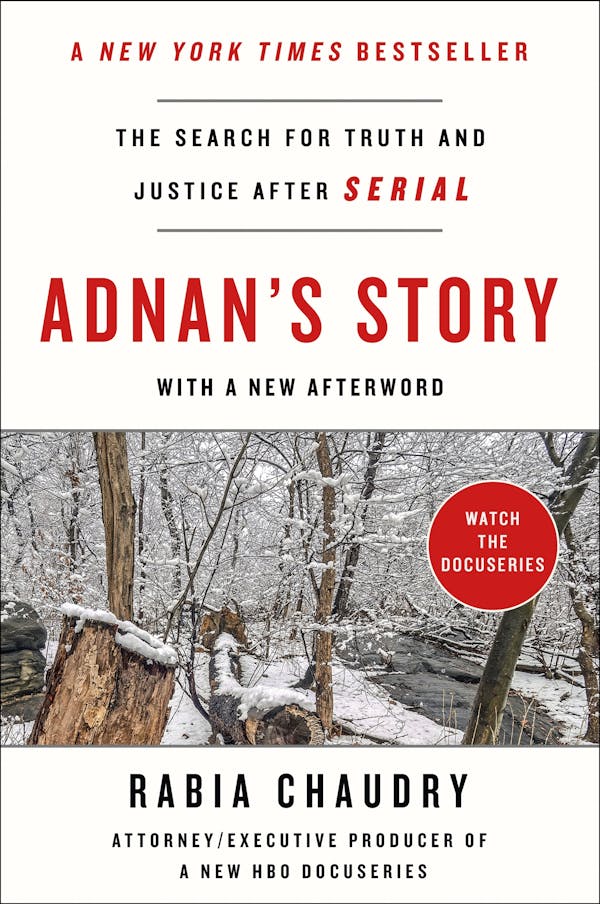 The podcast Serial resulted in such a remarkable surge in popularity for true-crime podcasts that researchers have since studied the "Serial effect" on real-life court cases and juries. The first season of the series came out in 2014, and is the subject of Adnan's Story: The Search for Truth and Justice After Serial by Rabia Chaudry (St. Martin's Griffin, $20). In the decade since, true-crime podcasts have come to represent nearly a quarter of chart-topping podcasts across platforms. With such incredible growth in the genre, it's perhaps no surprise that several novels have since centered on the journalistic process of using real life crimes to inspire popular media.
The podcast Serial resulted in such a remarkable surge in popularity for true-crime podcasts that researchers have since studied the "Serial effect" on real-life court cases and juries. The first season of the series came out in 2014, and is the subject of Adnan's Story: The Search for Truth and Justice After Serial by Rabia Chaudry (St. Martin's Griffin, $20). In the decade since, true-crime podcasts have come to represent nearly a quarter of chart-topping podcasts across platforms. With such incredible growth in the genre, it's perhaps no surprise that several novels have since centered on the journalistic process of using real life crimes to inspire popular media.
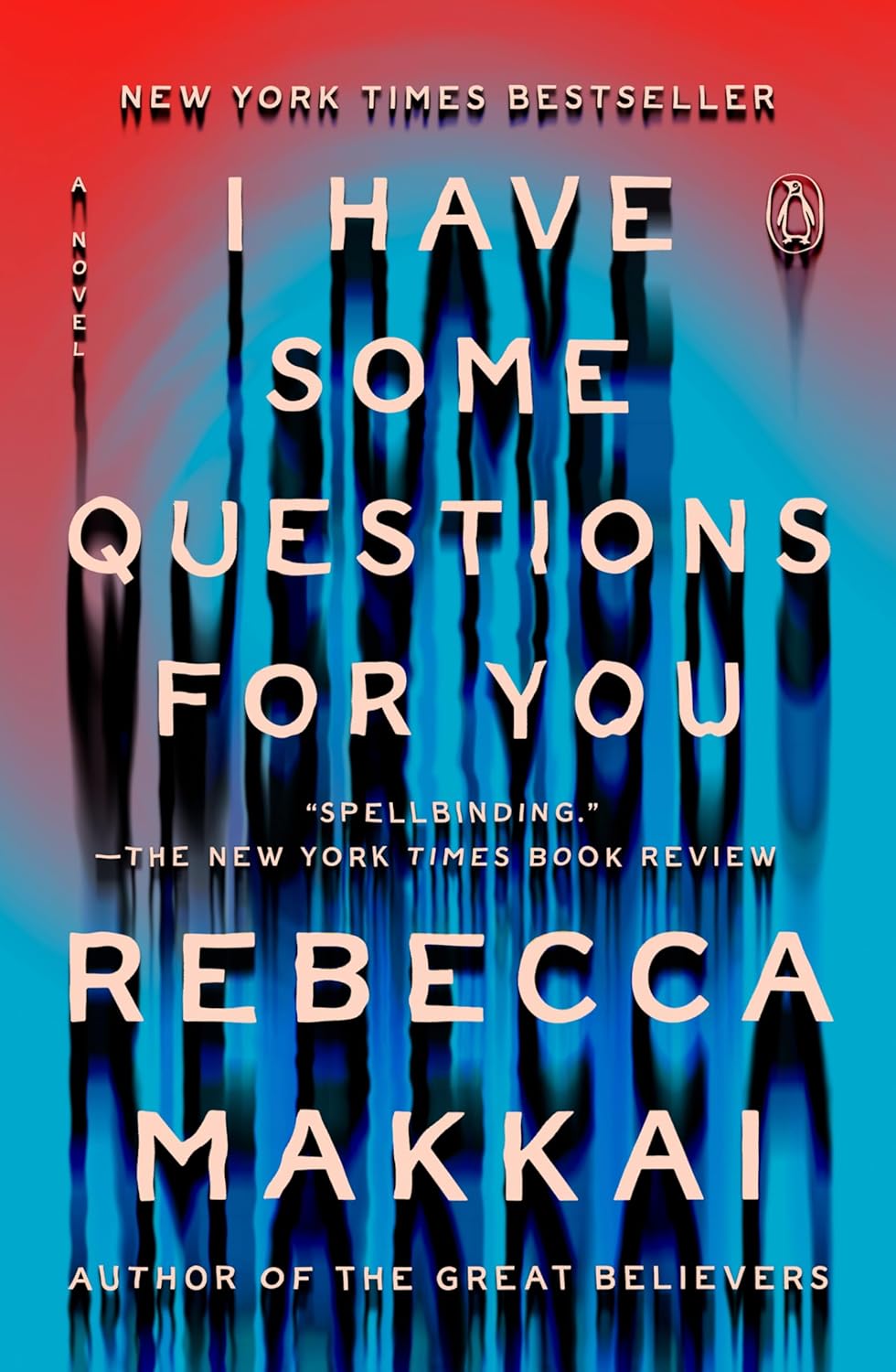 Rebecca Makkai probes the ethics of investigating old crimes in I Have Some Questions for You (Penguin, $19), as a podcaster returns to her high school campus to teach a podcasting class and winds up encouraging a student to dig into the 20-year old case of a murdered classmate. The novel has some notable parallels to the arc of the Serial podcast (a journalistic revisiting of a crime believed to be solved by local police, but with more than a few gaping holes in the case), but in Makkai's skilled hands, it never feels derivative, grappling not only with the ethics of true-crime podcasting but also questions of race, class, privilege, and social media in careful and thoughtful ways.
Rebecca Makkai probes the ethics of investigating old crimes in I Have Some Questions for You (Penguin, $19), as a podcaster returns to her high school campus to teach a podcasting class and winds up encouraging a student to dig into the 20-year old case of a murdered classmate. The novel has some notable parallels to the arc of the Serial podcast (a journalistic revisiting of a crime believed to be solved by local police, but with more than a few gaping holes in the case), but in Makkai's skilled hands, it never feels derivative, grappling not only with the ethics of true-crime podcasting but also questions of race, class, privilege, and social media in careful and thoughtful ways.
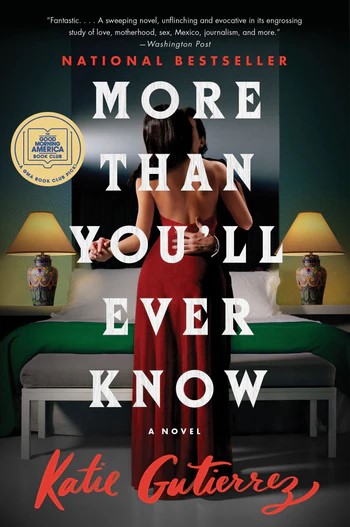 The case at the center of Katie Gutierrez's More Than You'll Ever Know (Morrow, $19.99) is also decades old, as a true-crime writer becomes obsessed with the details of a case against a husband accused of murdering his wife's secret second spouse. Though it seems cut-and-dried at first blush--a jealous lover sent into a rage by his wife's betrayal--the writer's mind is caught on just a few too many loose ends, threads she is determined to tie up despite the family's unexpected resistance to revisiting the case.
The case at the center of Katie Gutierrez's More Than You'll Ever Know (Morrow, $19.99) is also decades old, as a true-crime writer becomes obsessed with the details of a case against a husband accused of murdering his wife's secret second spouse. Though it seems cut-and-dried at first blush--a jealous lover sent into a rage by his wife's betrayal--the writer's mind is caught on just a few too many loose ends, threads she is determined to tie up despite the family's unexpected resistance to revisiting the case.
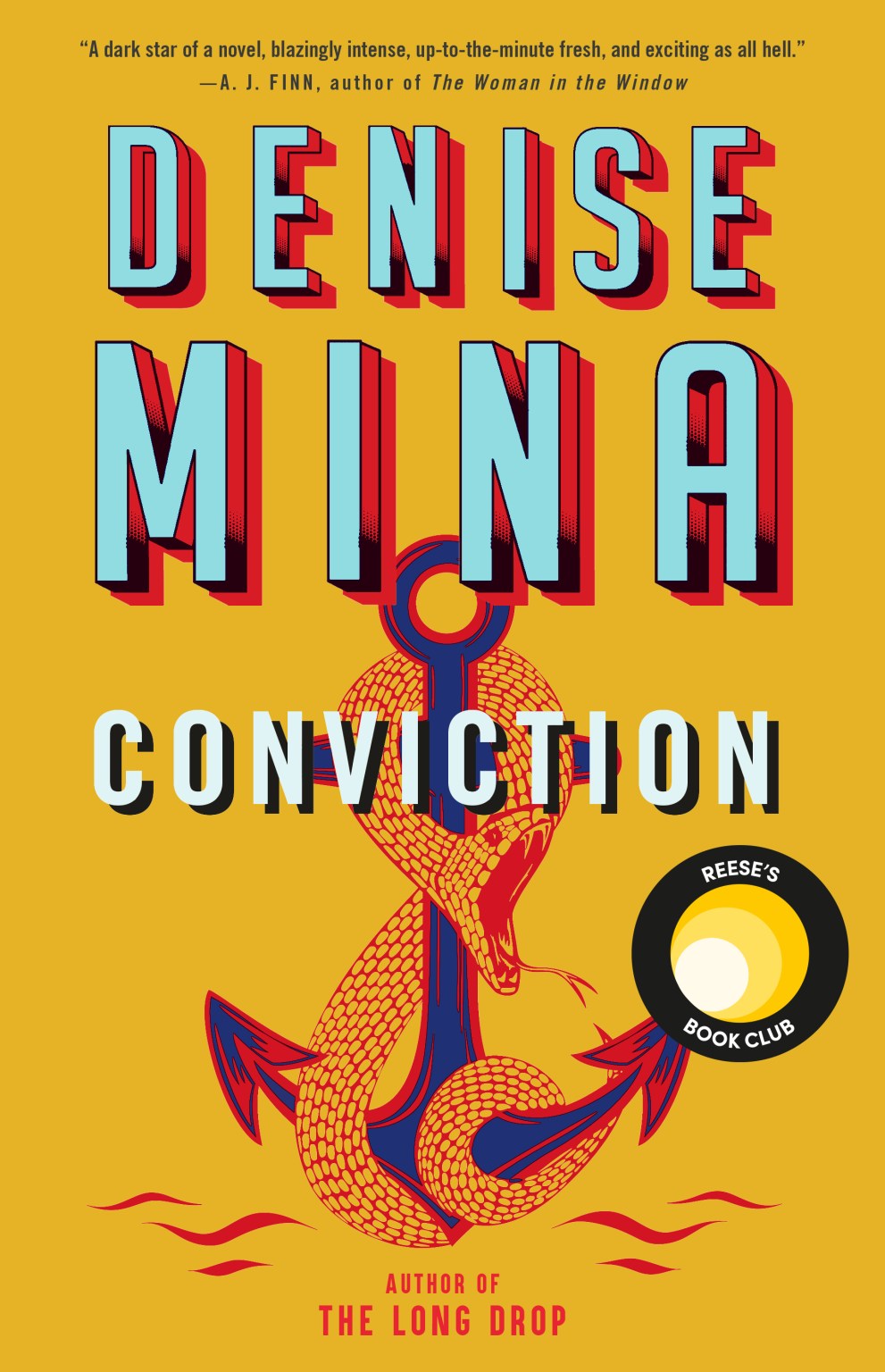 Meanwhile, Denise Mina's Conviction (Mulholland, $18.99) moves from the perspective of the true crime journalist to that of a listener, as an avid podcast fan realizes the victim of her latest listen is connected to her past. Kate Clayborn moves the true-crime premise into the romance genre with The Other Side of Disappearing (Kensington, $17.95), as a seasoned journalist and her apprentice investigating a conman link up with the daughters of the man's partner on an epic road trip in search of answers.
Meanwhile, Denise Mina's Conviction (Mulholland, $18.99) moves from the perspective of the true crime journalist to that of a listener, as an avid podcast fan realizes the victim of her latest listen is connected to her past. Kate Clayborn moves the true-crime premise into the romance genre with The Other Side of Disappearing (Kensington, $17.95), as a seasoned journalist and her apprentice investigating a conman link up with the daughters of the man's partner on an epic road trip in search of answers.
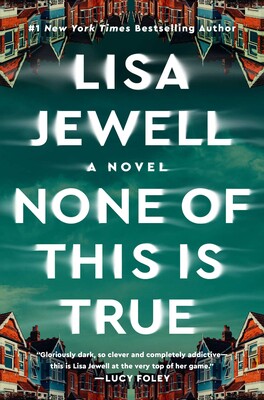 Most recently, I devoured None of This Is True (Atria, $28) by Lisa Jewell, swept up in the story of a podcaster who realizes partway through recording that she's making a true-crime podcast of her own life as she interviews the most unreliable of narrators for a feature. And as summer reading season commences in my part of the world, I'll be sticking with my paradoxical trend of true-crime novels on the beach this month. Next up: Amy Tintera's 2024 new novel, Listen for the Lie (Celadon, $26.99), which our reviewer called "quite sexy, compulsively readable, and laugh-out-loud funny." --Kerry McHugh, freelance writer
Most recently, I devoured None of This Is True (Atria, $28) by Lisa Jewell, swept up in the story of a podcaster who realizes partway through recording that she's making a true-crime podcast of her own life as she interviews the most unreliable of narrators for a feature. And as summer reading season commences in my part of the world, I'll be sticking with my paradoxical trend of true-crime novels on the beach this month. Next up: Amy Tintera's 2024 new novel, Listen for the Lie (Celadon, $26.99), which our reviewer called "quite sexy, compulsively readable, and laugh-out-loud funny." --Kerry McHugh, freelance writer
Book Candy
Book Candy
"Watch the earliest-known Charles Dickens film: The Death of Poor Joe." (via Open Culture)
---
Capital/Capitol. Merriam-Webster examines "7 Pairs of Commonly Confused Words."
---
"You're going to love the Unified Antonio Theory," Mental Floss promised in showcasing "10 interpretations of Shakespeare's works."
Rediscover
Rediscover: Chris Santella
 Chris Santella, outdoor enthusiast and creator of the Fifty Places series, died on May 23 after a battle with cancer. He was 61. Santella turned his greatest recreational passion--fly fishing--into a successful book, which in turn became a successful series of books published by Abrams. Fifty Places to Fly Fish Before You Die came out in 2004 and was followed by 18 other Fifty Places books, focused on golfing, camping, paddling, drinking beer, and more. The books were based on interviews Santella conducted with experts who discussed their favorite places.
Chris Santella, outdoor enthusiast and creator of the Fifty Places series, died on May 23 after a battle with cancer. He was 61. Santella turned his greatest recreational passion--fly fishing--into a successful book, which in turn became a successful series of books published by Abrams. Fifty Places to Fly Fish Before You Die came out in 2004 and was followed by 18 other Fifty Places books, focused on golfing, camping, paddling, drinking beer, and more. The books were based on interviews Santella conducted with experts who discussed their favorite places.
He also published a children's picture book, Biking with Grandma, in 2022 with Abrams Books for Young Readers; other fly-fishing books; and a natural science book--Cat Wars--with Princeton University Press in 2016. His first novel, Belgian Flats, about a fly-fishing guide who becomes manager of a salmon lodge in Russia, is due out in August from Lyons Press. His final book, Fifty Places to Travel Solo, will be published in October.
Abrams publisher Michael Sand said, "We are deeply saddened by Chris's passing. Abrams has proudly been Chris's publishing home for nearly 20 years. All his Fifty Places books--and perhaps most poignantly his final title, Fifty Places to Travel Solo--reflect Chris's passion for travel, adventure, and discovery. His entire body of work spanning locales and landscapes around the world will forever be a legacy to the joy of living life to the fullest."
On Trout Unlimited, Kirk Deeter posted: "The fly-fishing world is a little bit less 'adventurous,' and quite a bit less 'literary' now, because we recently lost one of the purest, most inspiring writing voices the sport has ever known. Chris Santella gracefully succumbed to cancer at the age of 61 on May 23. I chose those words carefully, because Santella never 'lost' anything--he fought... he won... he taught... he inspired... and most important, he was a role model, a great friend and one of the most genuinely caring people I've ever had the honor of knowing and working with. I know many others who feel just the same way."


